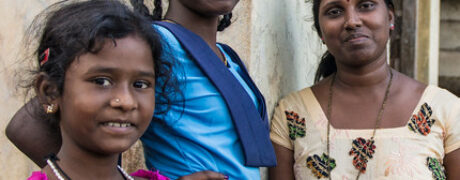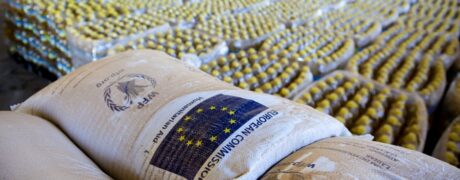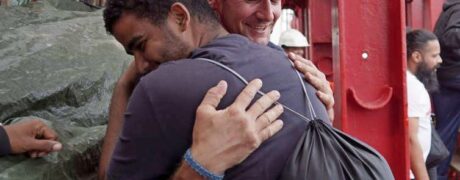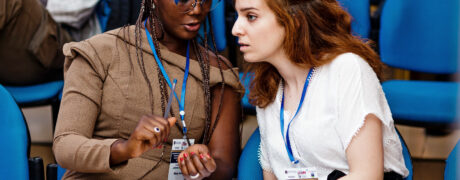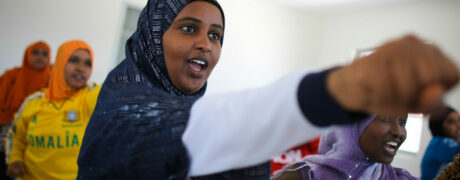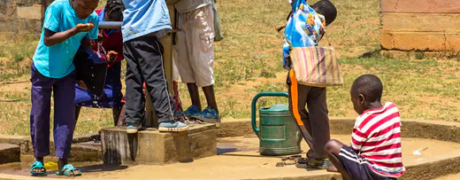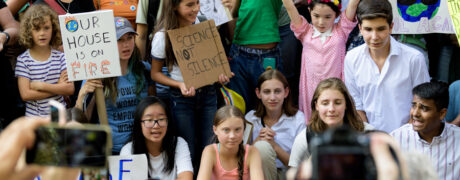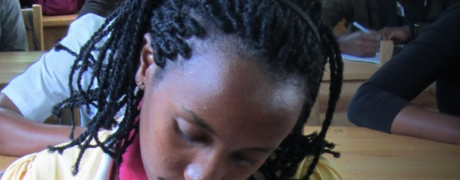- ABOUT US
- RESEARCH
- EDUCATION
- The Graduate School
- PhD Programme
- MSc Programmes
- Capacity Development
- News
- Design and Evaluation of Public Policies (DEPP)
- Design and Evaluation of Innovation Policies (DEIP)
- Evidence-Based Policy Research Methods (EPRM)
- Migration Management Diploma Programme (MMDP)
- Moving the Migration Policy Agenda Forward (MMPAF)
- Online Courses
- Short Courses (Masters)
- Tailor-made programmes
- UNU-MERIT, ITU Academy Training Centre
- Alumni
- Academic Funding
- NEWS
- EVENTS
- PUBLICATIONS
- LIBRARY
News
Global education rankings may overlook poor graduation rates
03 December 2019
One standardised assessment tool has become the key benchmark for national governments to judge their schools’ successes. But the academic rankings generated by the Program in International Student Assessment (PISA) are eclipsing important questions such as how particular groups of students are doin...
Continue Reading →Our nurturing environment helps our global rankings: Danilo Sartorello Spinola
28 November 2019
I previously worked at the UN ECLAC in Santiago de Chile, in a division that has partnered with UNU-MERIT on various projects. For two years I worked under Mario Cimoli, who used to be a colleague of UNU-MERIT Director, Bart Verspagen. It was Mario who first told me about the programme. Then Alejand...
Continue Reading →Why safe toilets are a matter of life & death: Across Africa, India & beyond
26 November 2019
Chances are – if you are reading this brief post – that you have never really had to worry about a full bladder (or worse). Of course, you would have needed to find a toilet at some point, possibly urgently, but there would have been at least one or two options. About 900 million people worldwide ha...
Continue Reading →Empowering people with disabilities: Lessons from the German labour market
21 November 2019
After having experienced great excitement working on my Masters’ thesis, I felt a strong drive to work in research afterward, which made me choose to do a PhD. Becoming somewhat of an expert in a topic is certainly challenging, but at the same time very rewarding way to spend your time. I very much ...
Continue Reading →Throwing development money at the ‘migration problem’ – is it completely misguided?
20 November 2019
There is very little evidence that development aid and interventions affect migration decisions. The evidence we do have is mixed and often shows the opposite of the intended consequence. What does this mean for policymakers?...
Continue Reading →Eritrean migrants face torture in Libya: What the international community can do
19 November 2019
Tens of thousands of East and West African migrants face violence, abuse, torture and loss of life as they transit through Libya to reach the Mediterranean. Are the migrants victims of human smuggling, human trafficking or neither? In the absence of a stable government in Libya, what can European co...
Continue Reading →Leave no waste behind: Exploring bottom-up initiatives in Ghana
18 November 2019
Waste management is a massive problem for many of the world’s fastest growing economies, as sacrifices are made on the altar of ever-expanding consumption. Ghana, a country in West Africa, is no different. In 2012, a World Bank report said that as many as 19,000 Ghanaians were dying prematurely and ...
Continue Reading →Learning & teaching in West Africa: The importance of partnerships
15 November 2019
There are many challenges that can arise when collecting data in developing countries: from heavy rain that stops your data collection for a few days, to arriving at a remote school in your sample just to find out that it is closed for the day due to some local festivities, to challenges in recruiti...
Continue Reading →How each can empower the other: ‘R&T’ Uruguay 2019
14 November 2019
“We must build bridges, meet the different actors working in the country by developing different forms of science communication – journalism, dissemination, education – and enrich each other from these differences.” Prof. Daniela Hirschfeld ...
Continue Reading →Political empowerment of women in Africa: Influence or number?
13 November 2019
In recent decades women’s political representation has significantly increased in Africa. From 2000 to 2018, the proportion of women parliamentarians almost doubled, and women’s representation in cabinet increased fivefold to 22% between 1980 and 2015. Unfortunately, the numbers do not necessarily i...
Continue Reading →Mygration Story: Crossing boundaries, staying true
12 November 2019
In many parts of the world free-will and decision-making are not considered natural rights for women. I was born and raised in one such country, where women have to negotiate or fight against man-made laws on a daily basis. When I use the term “man-made laws” I refer not only to the legal system but...
Continue Reading →Turning knowledge into sustainable growth: Are entrepreneurs the missing link?
11 November 2019
Recent economic theories posit that entrepreneurs are the missing link between abundant knowledge stocks and economic growth. Knowledge is uncertain; therefore, every entrepreneurial idea tested by a new firm is, in fact, market experiment. Innovative entrants introduce new products, develop new mar...
Continue Reading →African countries can’t industrialise? Yes, they can
07 November 2019
Narratives are essential. Humans are, after all, “helpless story junkies”. Business and economic success depend much more than is commonly acknowledged on getting the narrative right. And if there is a narrative where getting it right or wrong matters hugely, it is the narrative about Africa’s indus...
Continue Reading →Refugees & migrants know the risks of stowing away on a lorry – but feel they must take them
29 October 2019
It is still unclear what circumstances led to the deaths of 39 people who were found in the refrigerated trailer in a lorry park outside London. It is not known how these 31 men and eight women, some of whom are thought to be Vietnamese nationals, ended up in the trailer, where they thought they wer...
Continue Reading →Beating the Brain drain: Notes from the Africa-Europe Conference on Higher Education Collaboration
28 October 2019
“Good morning class!” “Good morning professor, how are you?” With these words teachers generally open teaching sessions in African classrooms, but today they were also the opening words at the Africa-Europe Conference on Higher Education Collaboration at the European Commission, 25 October 2019. In ...
Continue Reading →Nobel prize in economics: Experiments are no substitute for diagnosis
24 October 2019
Little is known about what’s happening in Mozambique’s labour market, except that jobs are scarce for young people. Shutterstock Last week we published some initial reactions to the Nobel Prize in Economics 2019, which was jointly awarded to Abhijit Banerjee (MIT), Esther Duflo (MIT) and Michael Kre...
Continue Reading →The fifth element of communications: Adding journalistic flair to academic rigour
24 October 2019
Earth, air, fire and water – not Afropop from the 1970s but essential elements from the ancient Greeks – which in our modern “comms ecosystem” roughly equate to website, press, events and media. Bear with me a moment and let me explain! Our website is the core, press gives oxygen, events are the cru...
Continue Reading →United Nations Day 2019: “Climate Woes Require Urgent Action”
24 October 2019
A UN Day 2019 message from UNU Rector and UN Under-Secretary-General David M. Malone ••• United Nations Day (24 October) is a time to reflect on how the UN benefits us all by addressing vital issues that are the common concern of all humankind. The UN Charter was written in the name of “We the peopl...
Continue Reading →New book on socio-economic inequality & education outcomes
18 October 2019
A new book on ‘Socio-economic inequality and education outcomes’ by Prof. Louis Volante shows that while it is possible to raise disadvantaged children’s academic achievement, socio-economic education gaps are still high and in many countries increasing. Much more needs to be done ...
Continue Reading →Teasing out the meaning: Capacity building in Migration (& Development)
17 October 2019
Capacity building is a term heard frequently in academic and development circles – but what does it actually mean? There are many definitions depending on the background of the user, but one general definition is “the process by which individuals and organizations obtain, improve, and retain the ski...
Continue Reading →© 2024 UNU-MERIT | Maastricht University




